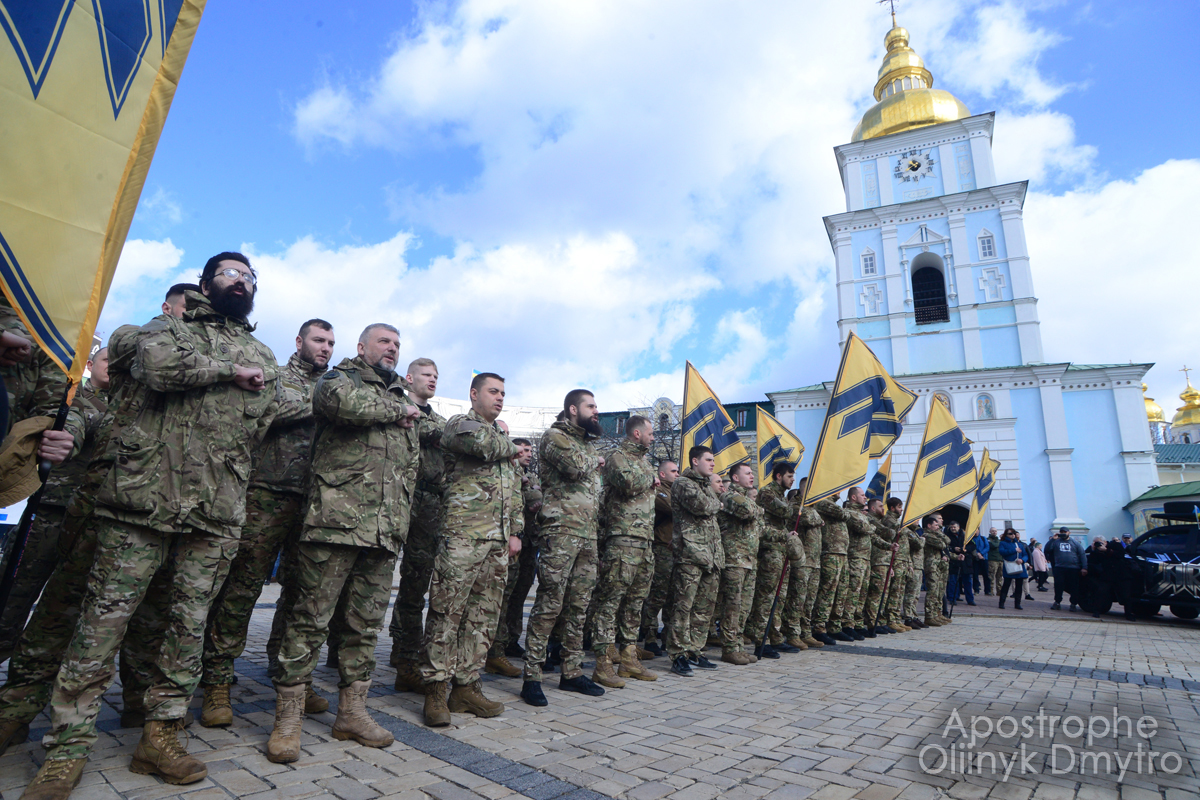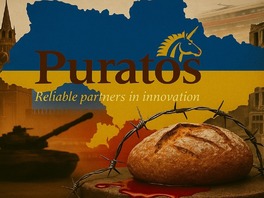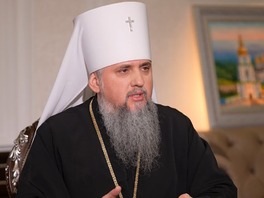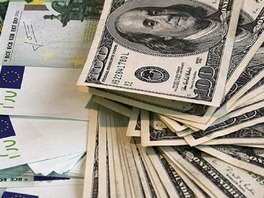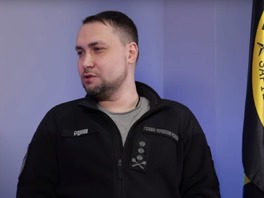For nearly two months, a separate detachment of special forces Azov is heroically defending the city of Mariupol. Under the influence of their own impotence, the Russians almost completely wiped out the once prosperous industrial city. Still, they could not take it under their control. Every time, the occupiers cut their teeth on the highly motivated fighters of Azov who have become a symbol of Ukraine's unprecedented resilience in this war. The situation, in turn, provoked the Russian Federation to produce a myriad of fakes about Azov, which, unfortunately, at times get picked up by the world media. Who are Azov and how to distinguish the truth from the Russian myth-making – read on Apostrophe.
The focus of propaganda
Spring, 2014. The Revolution of was in full swing, and Viktor Yanukovych fled the country. Russia was preparing a fake “referendum” in the Donbas and has already managed to occupy the Crimean peninsula. Volunteer divisions were gathering around the country. In April 2014, Acting Minister of Internal Affairs Arsen Avakov issued an order to create special police battalions. Azov was one of such battalions, created in Berdyansk.
Although Azov was staffed by volunteers (Maidan self-defense forces, football ultras, automaidan activists), the fighters never abused their powers. In November 2014, Azov was expanded from a battalion to a regiment and enrolled into the National Guard of Ukraine (military unit 3057).
Apparently, no military unit of Ukraine will ever catch as much attention of the Russian propaganda as Azov did. Azov became a perfect scapegoat for the perverted fantasy of the Russians, who were accusing Ukrainian fighters of terrorism, neo-Nazism, ethnic cleansing, the development of biological weapons, the preparation of sabotage with mass casualties, crucifixion of boys and much much more. The false popularity of Azov on the Russian TV was not surprising.
With the beginning of the anti-terroristic operation in the Donbas, Azov became the forefront of the national liberation movement. Azov fighters captured many self-proclaimed ministers and representatives of the L/DNR, took back the city police building in Mariupol, and subsequently liberated the city and its satellites: Pavlopol, Berdyanske, Kominternovo, Shirokino. Moreover, Azov participated in heavy battles for Ilovaisk, and all the following years they were performing tasks in the zone of the Joint Forces Operation.
Of course, a well-trained and equipped unit that successfully crushed terrorists terribly irritated the Kremlin, and therefore the Russian propagandists were given the “go” code.
Ukrainian "nuclear" weapons
The key weapon of Azov is motivation.
"The Ukrainian army is much more motivated to defend its territories than the Russian army is motivated to attack. That is, we are defending our own liberty, while the Russians are simply occupying and stealing," Bogdan Petrenko, deputy director of the Ukrainian Institute for Extremism Research, explains in a comment to Apostrophe.
The military motivation of the Azov fighters is fed by the national idea, based on the full readiness to defend our space (cultural, linguistic, territorial) from the encroachments of the enemy.

"The events in eastern Ukraine are not just a struggle between Ukrainians and Russians. This is a confrontation with Soviet zombification and the past, in which Ukrainians were kept for a long time, as if in a vacuum," the Azov website says.
With all the abundance of petrol money, the Kremlin could not afford the luxury of possessing a similar weapon. The possibility to die for a washing machine, for Putin's next term as a president, or for Alisher Usmanov's another brand new yacht is not all that motivational.
As a result, harboring the hatred for everything Ukrainian (language, history, culture) publicly, the Russian propaganda has concentrated its blow on the constitution of the Ukrainian national idea - the basis of Azov’s motivation. They invented a simple narrative that sounded from every Russian mouthpiece during the 8 years of the war: to profess the Ukrainian idea is to profess Nazism.
"They took Ukrainian patriotism, called it neo-Nazism, and fed it to the Russian consumer," adds Petrenko. "Manipulations work as follows: some single facts are taken, and a system is made from these facts, spreading around the entire regiment, and then to the whole country. I do not rule out that among the representatives of the military units, any military unit, there might be people prone to extreme views. The army is a cross-section of society. The personnel of all our military formations are ordinary people, who are exactly the same as the rest of the Ukrainians. They made Azov a scarecrow for the Russian audience. Most of the people who are there are just patriots of Ukraine and have nothing to do with neo-Nazism."
But being not that bright, the Russian biomass absorbed the propaganda and even asked for more. Frankly, not only Azov but also other units with a bright national identity, such as the Right Sector became famous.
Myths and reality
Let's start with the main lies: Azov are neo-Nazis.
So what kind of neo-Nazism practice does Azov conduct? If someone is an athlete, he should do sports, if someone is an actor, he should play in the theater, and if Azov is neo-Nazi, then they should act respectively? During the entire existence of Azov, have we heard about high-profile scandals related, for example, to the anti-Semitic behavior of the detachment? It is worth mentioning that there is a large Jewish community in Mariupol, where Azov is stationed, and there have never been any conflicts with them. We also never heard about the ethnic oppression of the Greeks in the city. After all, historically, Mariupol is the center of Hellenism in Ukraine.
Furthermore, according to information from the detachment, not only Ukrainians but also Russians, Jews, Greeks, Georgians, Crimean Tatars, and Belarusians serve in Azov. Can it be called a neo-Nazism?
 Mariupol, 2022. After the Russian attacks
Mariupol, 2022. After the Russian attacks
Secondly, Azov is a part of the official power structure, a part of the National Guard of Ukraine, which along with other law enforcement agencies is subject to the disciplinary charter of the Armed Forces of Ukraine. The disciplinary charter states that every member of the armed forces must adhere to the Constitution of Ukraine. Thus, article 24 of the Constitution reads: "There can be no advantages or restrictions on the grounds of race, skin color, political, religious and other beliefs, sex, ethnic and social origin." That is, by the very fact of service in the structure of the National Guard, the Azov fighters all recognize the prohibition of discrimination.
As you can see, there is no neo-Nazi practice. What then is there? There is an original aesthetics of the military unit, which is distorted in the prism of Russian propaganda and presented as a "proof" of Nazism.
For example, the Russians were driven crazy by the Azov chevron, which outwardly resembles a wolfsangel. Wolfsangel was indeed used in certain divisions of Nazi Germany... BUT! Firstly, variations of this symbol can still be found in the heraldry of 24 German cities.
Аnd secondly: "The so-called Hook sign was extremely popular among the Volyn gentry and the Cossack families. In the modern interpretation of the patriots of Ukraine, it is a monogram, the intersection of two letters I and N, which symbolize our central slogan - "The Idea of the Nation," explained the first commander of the Azov Andriy Biletsky.
The Russians also often draw parallels between the Azov’s torch processions and the torch processions of the Third Reich. However, the only aim of lighting dozens of lights (torches) at night, is to achieve an effect, a beautiful picture, and, thereby, draw attention to the event. So, long before the creation of “Azov” and before the war in Ukraine in general, residents of Oslo held the torchlight procession, protesting against the award of the Nobel Peace Prize to the European Union. Another example is a last-year torchlight procession in front of the German Parliament building, during which the Germans honored the memory of their soldiers who died in Afghanistan. Fire in the night is an element of socio-political performance, not a “neo-Nazi” practice.
With this, the myth that Azov is a neo-Nazi dissipates at the slightest analysis.
In 2019, Azov really appeared in the middle of an unpleasant scandal. In the United States, a group of Democratic congressmen demanded that the State Department put Azov on the list of terrorist organizations. However, according to Vyacheslav Likhachev, a historian and researcher of ultra-right movements in the post-Soviet space, the initiative of the congressmen was influenced by the internal political situation of the United States.
"Against the backdrop of the growth of far-right terror in the country, congressmen decided for the first time to demonstratively add to the list of such organizations a certain foreign group of “white supremacists,” that is what the ultra-right-wing is called in the United States. However, the initiators, guided by the image created by the media, did not even understand that it was a detachment of a state body and not an informal paramilitary group. After the clarification, this initiative was forgotten, and the first group of “white supremacists” that was included in the list of terrorists was the Russian Imperial Movement," Vyacheslav Likhachev noted.
In 2021, Japan recognized Azov a terrorist organization, but in early April 2022, the Japanese Ministry of Justice apologized and excluded the Ukrainian military detachment from this list.
However, the Russian consumer will never learn about these facts. Yet, it doesn't even matter.
"The Russians will turn any Ukrainian who is ready to defend his country till death into a neo-Nazi. Even if this Ukrainian speaks Russian or is an ethnic Russian," Petrenko summed up.

